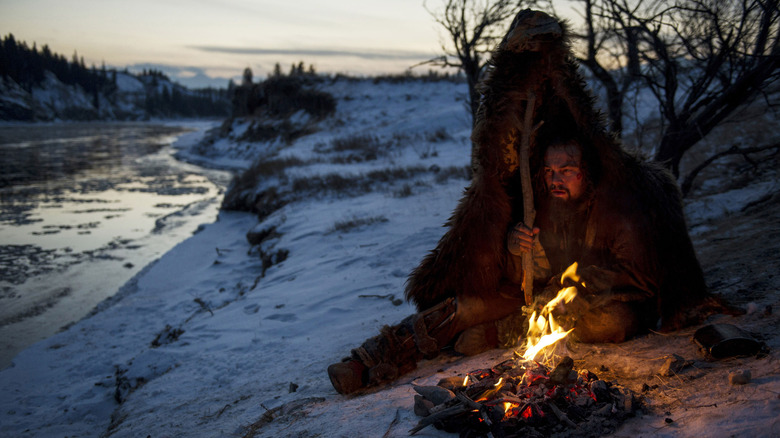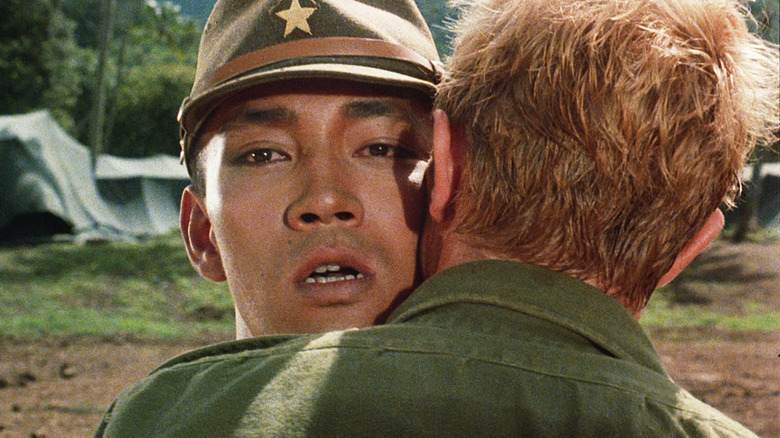Ryuichi Sakamoto, Composer Known For The Revenant And The Last Emperor, Dies At 71
Oscar-winning Japanese composer Ryuichi Sakamoto, who created the original scores for Bernardo Bertolucci's "The Last Emperor" and Alejandro G. Iñárritu's "The Revenant," has died at the age of 71. Sakamoto had been undergoing treatment for stage 4 cancer since June 2020, and his death on March 28, 2023, was announced via his official Twitter account and that of the record label he founded, Commmons.
The statement from Commmons notes that Sakamoto "continued to create works in his home studio whenever his health would allow. He lived with music until the very end." It concludes by sharing one of Sakamoto's favorite sayings: "Ars longa, vita brevis (Art is long, life is short)."
"The Last Emperor" swept the Oscars in 1988, winning in every category including Best Original Score, for which Sakamoto was nominated alongside collaborators David Byrne and Cong Su. "The Revenant" also led the pack at the 2016 Academy Awards, nominated in twelve categories and winning three. However, Sakamoto's score was deemed ineligible because his collaborative work with composers Carsten Nicolai (known professionally as Alva Noto) and Bryce Dessner was too layered to easily distinguish the individual contributions.
'A weird guacamole of music'
While it certainly would have been nice for Sakamoto to collect a second gold statuette, if anything the "The Revenant" being deemed ineligible for Best Original Score highlights the experimental, even revolutionary nature of its music. For Iñárritu it was a particularly frustrating blow, as the score for his previous film, "Birdman" — which was composed and performed by jazz drummer Antonio Sanchez, and was one of the most defining elements of the film — had also been deemed ineligible on a technicality.
Speaking to IndieWire, Iñárritu condemned the Academy's exclusion of Sakamoto, Nicolai, and Dessner's work, which he described as "a weird guacamole of music" that the venerable institution had liked, but declared impossible to parse into percentages:
"They said the music was incredible, the tapestry was so cool, but they didn't understand who did what, it was very confusing. This was the plan, to blend the sounds of nature and the complexity of nature with no way to understand what is what. The complexity of that tapestry in concert is not accidental."
Sakamoto himself was apparently less concerned by the Academy's decision, telling The Vinyl Factory, "none of us joined the project with any award being our pursuit." However, he did suggest that the Academy might rethink its rules. "In the future I can see more great films having this issue," said Sakamoto. "Art is not a static part of culture, but flexible, changing, and interpretative."
'Ars longa, vita brevis'
"The Revenant" stars Leonardo DiCaprio as a fur trapper who returns from the brink of death in the wilderness to seek revenge against the man who murdered his son. When he was working on the score, Sakamoto was recuperating from his own brush with death; prior to this most recent cancer diagnosis, he had previously been diagnosed with throat cancer, which had gone into remission.
In a 2016 interview with Fact magazine, Sakamoto said he was stunned to hear the news of David Bowie's death the night before. "Even now I can't believe," said Sakamoto. "This morning I carefully listened back to each track of the new album. His vocals sound not like a cancer patient — because I know that. I was diagnosed with cancer two years ago, so I know what it is. It doesn't sound right."
Sakamoto was more than just a fan of Bowie's music. His first ever screen acting role was opposite Bowie in Nagisa Ōshima's 1983 war film "Merry Christmas, Mr. Lawrence" (for which Sakamoto also wrote the score). Set during World War II, the film stars Sakamoto as Captain Yonoi, the commander of a POW camp where Bowie's character, Major Jack "Strafer" Celliers, is interned. The two men were in some ways mirrors of one another: Sakamoto was also best known for his music, as a member of the electronic band Yellow Magic Orchestra, and Bowie was also relatively new to acting.
"I was with him for a month, every day, on a very small island in the South Pacific Ocean," Sakamoto told Fact. "It was an amazing experience. He was [a] very nice guy. Very straightforward." Sakamoto won a BAFTA for "Merry Christmas, Mr Lawrence," and was later nominated for both "The Last Emperor" and "The Revenant."
Towards the end of his life, Sakamoto reflected on how the coronavirus pandemic, and the breakdown of normal life that came with it, had the silver lining of spurring unique and innovative ideas in artists and musicians. "True creativity is destructive," said Sakamoto. "True creativity is making something entirely new. Something revolutionary and something destructive."


